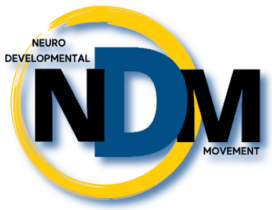One of the trends I have appreciated is a new recognition of neurodiversity and an acceptance of children who are different in their social, emotional, and learning skills. How can we possibly truly love a person when we don’t see and accept who they really are?
However, I also see a component of that trend that disturbs me.
My goal as a NeuroDevelopmental Movement® Consultant is to help every child with whom I work, reach its full potential. I believe that scrutiny of a child’s neurodevelopmental status is an appropriate way to see a child who has a diagnosis on the DSM, and this scrutiny does not contradict the recognition of neurodiversity. And when I see a child with the diagnosis of a spectrum disorder, I want to know that THAT child is also reaching THEIR potential.
I cannot accept “writing them off” by saying that it is just another variation of the wide range of human presentations, that we should accept all of our spectrum children as simply neurodiverse, rather than investigating if that child too, is reaching their potential.
A neurodiverse child who does not have mature communication between the two cerebral hemispheres, (a situation that we frequently address in our work), may have impulse control issues, attention challenges, fixations, poor speech, inability to communicate their feelings, and a wide range of challenges related to how the right and left brain communicate. I don’t feel it fair to label this child as neurodiverse, and continue to provide academic and social supports without dealing with a gap in functioning.
If the mirror neuron system in the brain is not yet mature, a child will be unable to have appropriate social responses, will have challenges with reading social cues, and be unable to offer back appropriate social signals. I do not believe that leaving this issue untreated respects a child’s true nature.
If the eyes do not converge and the child has anxieties related to not being able to see the world in full three dimension, not able to read without stress, not able to handle a large and visually busy environment, can we say that this child is reaching their potential?
The list of issues that might limit a child who is considered neurodiverse is long, more than appropriate for a Facebook post. So I will get to the point.
I cannot accept a culture in which we limit our neurodiverse children as they are, without investigating any limiting neurological factors that CAN BE ADDRESSED. I want to accept all of our children and also make available to all children the NeuroDevelopmental Movement® programs that are their birthright. A healthy brain is something that I want to insist on for children at any place on the continuum of human social, emotional, physical, and learning skills. And I also support, with this one caveat, the move to create more and more acceptance for all children on that continuum of expression.

